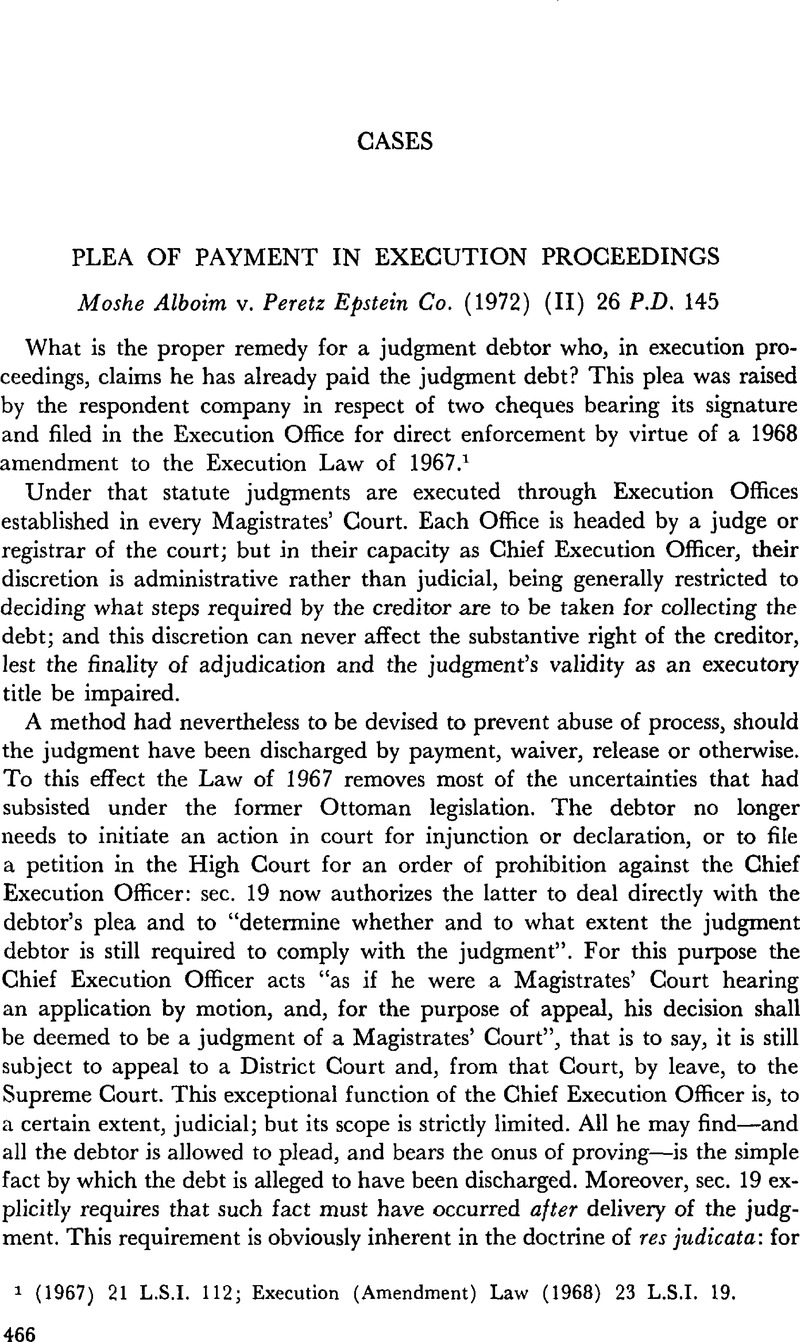Article contents
Plea of Payment in Execution Proceedings
Published online by Cambridge University Press: 12 February 2016
Abstract

- Type
- Cases
- Information
- Copyright
- Copyright © Cambridge University Press and The Faculty of Law, The Hebrew University of Jerusalem 1973
References
1 (1967) 21 L.S.I. 112; Execution (Amendment) Law (1968) 23 L.S.I. 19.
2 Livneh, E., “Summary Procedure in Israel and Abroad” (1967) 2 Is.L.R. 210.Google Scholar
3 Ibid., 214.
4 For a criticism of the clause, see Weisman's, J. scathing remarks in (1970) 3 Is.L.R. 392.Google Scholar
5 Sed quaere. The main reason given by the Supreme Court was that “if the date of maturity of a cheque is to be taken as that of the judgment, it would follow that in one and the same matter two judgments might be delivered and that the defendant might have to pay twice (if he be found liable after trial) or there might be two conflicting judgments (in case the action is dismissed)”. This argument is far from convincing since in practically all systems of procedure there is ample room for successive judgments being delivered in the same action, either confirming or repealing each other, whether on appeal, rehearing, review, application to set aside, or any other mode of attacking a judgment. As for the preference to be given to the date of service of the creditor's application, the reason given is its certainty, as opposed to the relative uncertainty of the date of maturity of certain negotiable instruments. But it may be objected that this certainty, based on the double assumption that service was both valid and effective, ceases when either of these assumptions is disproved (as occurred for example, by an irony of fate, in the very case under discussion).
6 Civil Procedure (3rd ed., 1967, in Hebrew—4th ed. in preparation).Google Scholar
- 2
- Cited by




